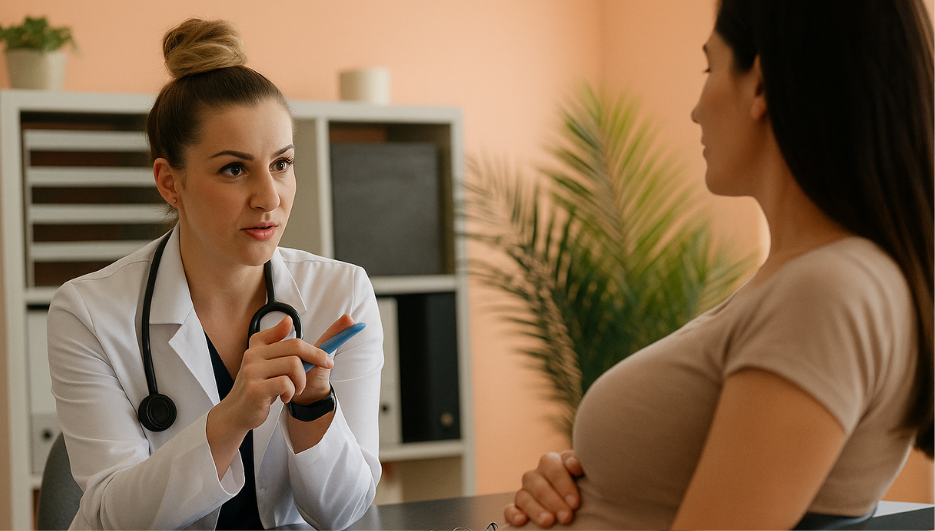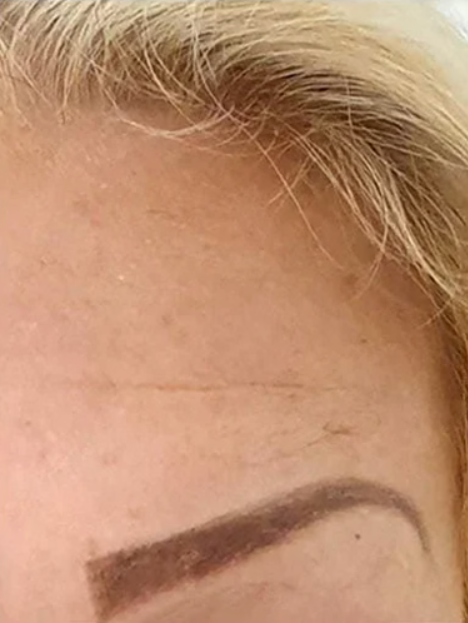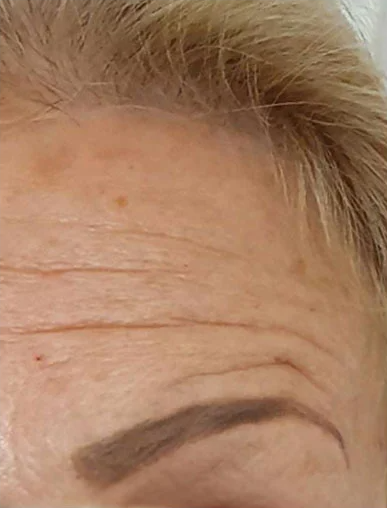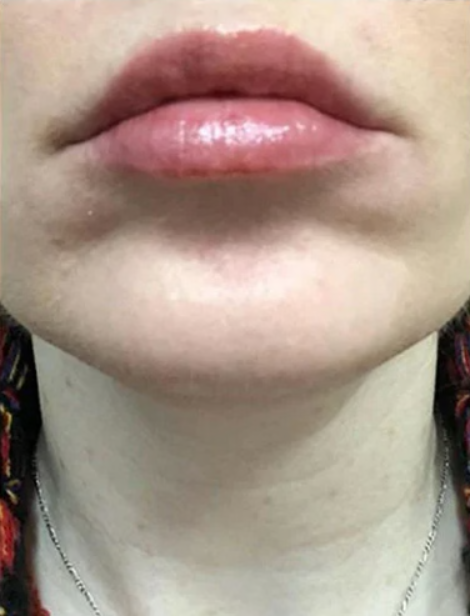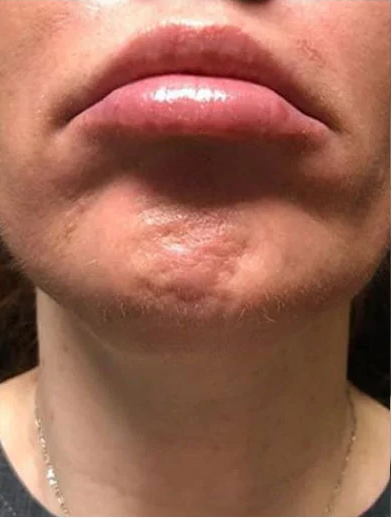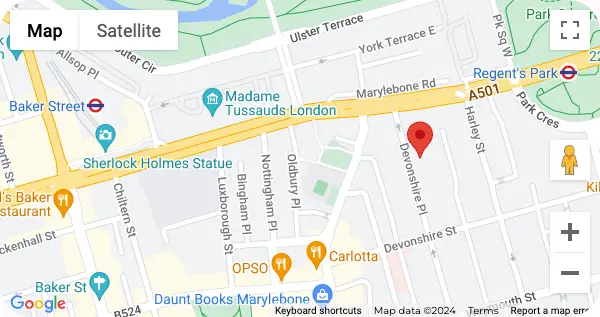We do not treat pregnant women with Botox. Patient safety is paramount, and in line with international clinical standards, we postpone all procedures until after the completion of breastfeeding.
Dr Aamer Khan
MSC, CHD, MSBC
GMC: 3128431
Introduction
Botox has long been a trusted solution for smoothing fine lines and addressing certain medical conditions. But if you’re pregnant or planning to conceive, you might be wondering whether it’s safe to continue. This guide provides expert-backed insights to help you make an informed decision.
Is it safe to get Botox during pregnancy?
In short: no. Botox is not recommended during pregnancy. There isn’t enough clinical research to confirm it’s safe for pregnant individuals or their babies.
Botox (botulinum toxin type A) works by temporarily relaxing muscles. While the doses used for aesthetic or medical reasons are small and localised, pregnancy introduces unknowns. Because the safety data for pregnant patients is limited, most practitioners take a cautious approach.
What our expert says
“We don’t currently have clinical studies proving Botox is harmful in pregnancy, but equally, there are no trials confirming it’s completely safe either. We always recommend avoiding it during pregnancy to protect both mother and baby.”
What about non-cosmetic Botox?
Botox is also used for some health problems including:
- Chronic migraines
- Heavy sweating
- Teeth grinding
- TMJ disorders
The choice is less clear-cut for these examples. If the condition affects quality of life greatly, your doctor may discuss risks and benefits. But Botox is still usually delayed unless there are no safer options.
Explore more about these uses in our detailed guides:
Botox for Bruxism
Repeated grinding of the teeth, often due to chronic stress, medications, or sleep disorders – can result in jaw pain, tension headaches and worn teeth. Botox shots can smooth the overactive muscles and with that reduce clenching, and in turn relieve pain, allowing you to still chew and speak.
Botox for Sweating and Hyperhidrosis
Sweating is a very uncomfortable situation both physically and socially. Botox temporarily inhibits the nerves that activate sweat glands, primarily under the arms, on the palms or soles. For those who have not responded to a topical antiperspirant, this treatment can be useful.
Botox for TMJ
Temporomandibular joint disorders can cause constant jaw pain, earaches and clicking when chewing. Another is that Botox suppresses muscle activity around the jaw joint, lessening tension and thereby enhancing function.
What happens if you get Botox while pregnant?
Some women undergo Botox injections before they know they are pregnant. If it does happen, it’s important to know what the evidence indicates.
How can Botox affect your baby?
Botox is a neurotoxin, but in therapeutic doses, it remains localized to where it’s injected. Blood absorption is low. To date there are no known fetal damages to pregnant women that could be directly attributed to Botox.
Overall, when Botox is used and dosed appropriately in the low, standard amounts and is injected in the correct manner, the chances of it affecting the fetus or growing baby are thought to be extremely small. But there are no large-scale human studies to prove this, so it’s not recommended during pregnancy as a precaution.
Only at extremely high doses were adverse effects reported in animal studies. If you’ve had Botox before you knew you were pregnant, report it to your practitioner, but in most cases, you don’t need to do anything.
How can pregnancy affect your Botox results?
Pregnancy brings changes in hormones, blood flow, and immune response. These changes could affect how Botox settles in the muscle or how long its effects last.
For example:
- The effects may not last as long
- But you may not be realizing the full impact
- Puffy and bloated looking some times
Some patients even naturally get a softening of lines during pregnancy, so Botox is less of a concern.
Effective & professional doctor-led Botox and Pregnancy at our central London clinic
Verified Before & After
Verified Before & After
Safer alternatives to Botox during pregnancy
If you want your skin to be glowy and healthy during pregnancy, there are safe treatments that you can have done by an educated professional. These include:
- Facials safe for pregnancy: Targeted at hydration and soothing inflammation.
- Light chemical peels: Treatments involving lactic acid, or glycolic acid, can target pigment and prevent breakouts.
- LED light therapy: Particularly the blue or red variety, which can reduce acne or improve skin texture.
- Topical skincare: Vitamin C serums, hyaluronic acid and niacinamide are typically safe for use.
- Microneedling (in rare cases): If done without numbing agents and by a practitioner who is familiar with the procedure on pregnant patients.
Steer clear of powerful active ingredients such as retinol or high percentages of salicylic acid unless your healthcare provider says otherwise.
How soon can you resume Botox treatments after pregnancy?
It’s usually recommended to wait until after you’ve given birth and finished breastfeeding. The exact timeline varies depending on how your body recovers postpartum, your goals, and your practitioner’s guidance.
Most patients resume Botox a few months after birth, once hormonal shifts have stabilised.
Can you get Botox while breastfeeding?
This remains a grey area in clinical research. Because it is unlikely that Botox enters breast milk in significant amounts, some doctors allow it on a case-by-case basis. However, many clinics prefer to wait until breastfeeding ends.
I got Botox while pregnant: What should I do?
Firstly, don’t panic. It’s also not unusual for people to have had Botox before learning they were pregnant, and there are no confirmed reports of harm to babies from this.
The main thing is informing your midwife or GP, so they can record it in your maternity notes. This is to help ensure you receive the best care going forward.
There’s nothing to be done in most instances. General Rule of ‘No Botox while Pregnant’ Because of this, Botox treatment is something to avoid during pregnancy as well.
If you’re not sure whether any treatments you’ve had could affect your pregnancy, mention it at your next antenatal visit. Oh, it can feel good to have clarity.
FAQs about Botox during pregnancy
- Can you get Botox while trying to conceive?
There isn’t a specific fundamental The general recommended method; however, many customers opt to delay their cosmetic beauty treatments when they are actively attempting to pursue conception to prevent acquiring it if they get pregnant immediately.
- Do celebrities get Botox while pregnant?
Some may do so, but it is usually not recommended by reputable clinicians. Pregnancy is not the time to take a cosmetic risk, regardless of what is on your public profile. The majority of famous women who not only maintain an esthetic regimen but wish to spruce themselves up a bit while pregnant tend to opt for safe, skin-boosting treatments than for injectables.
Which treatments are and aren’t suitable while pregnant?
Typically safe:
- Hydrating facials
- LED light therapy
- Lactic acid peels
- Topical antioxidants
To avoid:
- Botox and dermal fillers
- Laser treatments
- Retinoids (oral and topical)
- High-strength chemical peels
When in doubt, ask a dermatologist who is well-versed in pregnancy-safe skin care.
Pregnancy is an extraordinary time in a woman’s life. Though it’s best to avoid Botox until after baby makes his or her debut, there are several safe and effective ways to support your skin at this stage. At Harley Street Skin Clinic, we don’t want a second wave to hit with goofs and gaffes about making sure we can face forward once again.
Reserve a botox appointment
One of our experts will be more than happy to answer any questions you have.
Book AppointmentLuísa Moura
★★★★★
Had the Morpheus treatment with Rose, she was very kind and explained everything in detail. I highly recommend the clinic and her services.
13th February 2026
WP L
★★★★★
I had a wonderful experience from the moment I walked in! The receptionist was incredibly warm and friendly, and the doctor was exceptionally professional and made me feel completely at ease.
13th February 2026
Mali
★★★★★
Amazing clinic, always so accommodating, always thrilled with the results. Been attending this clinic for years and it’s definitely one of the best in the Harley Street area!
14th February 2026



